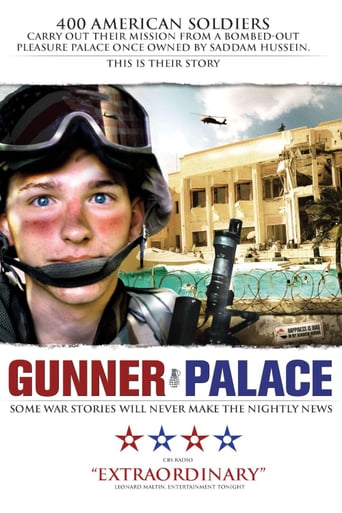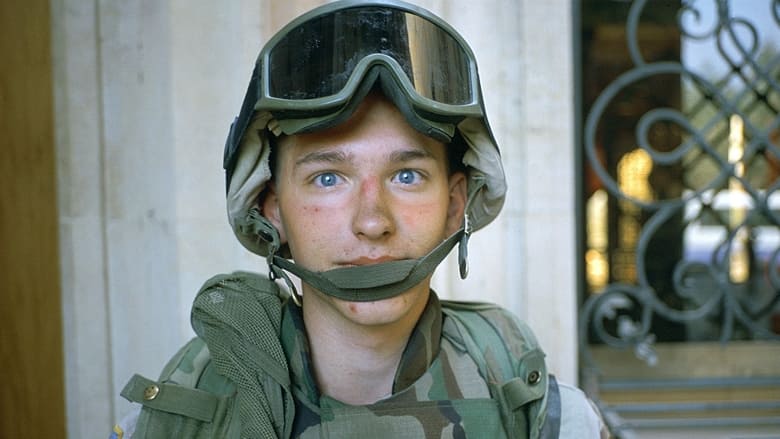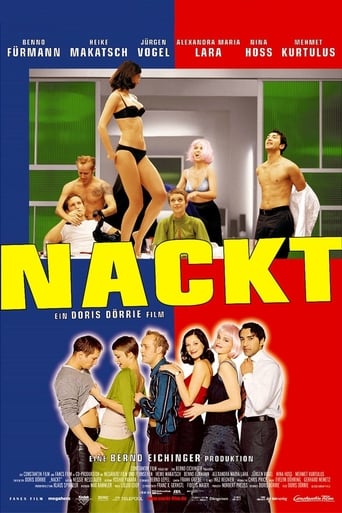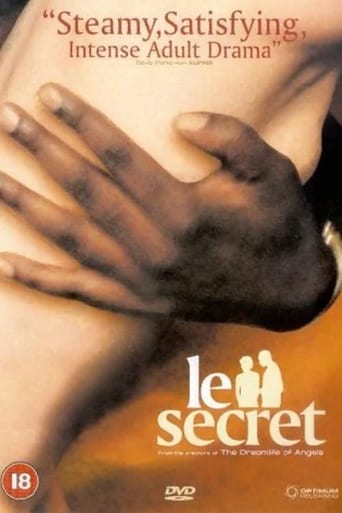

Gunner Palace (2004)
American soldiers of the 2/3 Field Artillery, a group known as the "Gunners," tell of their experiences in Baghdad during the Iraq War. Holed up in a bombed out pleasure palace built by Sadaam Hussein, the soldiers endured hostile situations some four months after President George W. Bush declared the end of major combat operations in the country.
Watch Trailer
Cast


Similar titles
Reviews
I met director and ex-soldier Michael Tucker just before the screening of his documentary about post-war, minor-conflict Iraq. He looked very sombre and said American audiences tend to look at Iraq reporting as entertainment. As somebody who has followed the reporting of the Iraq war quite avidly (and with the advantage of British and international media coverage rather than the more one-sided American broadcasts), I assured him I was very interested to see what his film had to say. Disappointingly, I didn't feel this was very much.Michael Tucker has known ten people that have been killed in Iraq since he worked there with them. That is no small burden to be carrying. Sadly, I neither knew them, nor do I see any similarity between the U.S. troops in the film and British troops that would enable me to empathise to any great degree. With a couple of exceptions, the young Americans portrayed are not the best of adverts for their country - not for any terrible wrong-doing - simply they remind me of the sort of youths that hang about on street corners, that don't take anything too seriously, but have been give a wage and taught to use a gun. One female soldier and a bespectacled young man seem fairly articulate, but the others fill up much footage with inane jokes, playing guitar, and rapping. This might be quite understandable as a way of letting off steam when faced with daily dangers that most of us cannot even conceive of, but it paints a pretty uninviting picture of the individuals. As liberators, they are far from role models. If the army does them some good (which might be arguable both ways) that does not excuse the impression they create worldwide, of loud mouthed youths that have little interest or understanding of others.When I tackled Tucker about this after the film, he pointed out that the average age of American troops was quite young - about 20 - as opposed to their British counterparts, who are a bit older and more mature. Gunner Palace is the name of Saddam's former palace, now occupied by American troops and used for general partying. I searched in vain for something that would add to the arguments about the rights and wrongs of the Iraq invasion. Tucker said the general American feeling he encountered was that people supported the troops even if they didn't support the war. When I asked him how this was different in any way to his view, he seemed stumped, said his view kept changing, then he admitted he felt America had bit off more than it could chew. To him, the 'rights and wrongs' were 'obvious'. Really? We must be pretty obtuse in Britain to have been having such a lengthy debate over it in that case. Even with a Masters Degree in ethics I don't find the rights and wrongs of such a complex situation 'obvious'. I have many wonderful friends who are Americans, so I know the ones portrayed in his movie are not completely representative - but they do bolster the image Americans (according to international studies) have abroad of being noisy bullies. Apparently test screenings to army units considered the way Gunner Palace portrays the troops quite fair and representative.I pressed Tucker on whether there was an over-riding reason why he had chosen to make such a movie (I could think of a number - one might be as a tribute to the soldiers killed and a memorial their families could keep). He said he felt the media didn't cover what being an ordinary soldier in Iraq was like. That's a pretty decent reason and I support his objective in wanting to document it. Gunner Palace does show the day to day life of the squaddies (although the film could easily have been condensed into 15 minutes to show this - at 85m it has a boring monotony, too much rap, elaborate praise of McDonalds and Snapple, and kids joking about for so long that Rumsfeld starts to sound fascinating). But Gunner Palace fails to show the deeper ways those youngsters will have been affected. How far it succeeded in its stated objective is maybe for history to decide - and in the event that history can be bothered, it is to be hoped that there will be more substantial backgrounds than Mr Tucker's film alone provides. But seeing as both Americans and Iraqis have lost so much in the war it is good that responses from those countries have been appreciative.Apparently bootleg copies are freely available on the streets of Iraq.
Wow. A documentary not made by Michael Moor that still sucks. In this case the movie sucks because the direction is horrible, actually there is almost no direction. I like the content, but this is more of a home video then a documentary.Gunner Palace is about a unit of soldiers living in one of Saddam Hussein's palaces during the war in Iraq. The movie shows day to day life while soldiers explain what is going on, sometimes in rap song, and sometimes in humor, and the dangers they face.The interesting aspect of this movie is how it shows the soldiers feeling neglected now that the press is reporting the day to day activities like it did during the combat during the "war." Many of them feel that the public doesn't understand that they are still fighting and dieing every day. I also enjoyed how the film mixes the good and the bad the soldiers' experience. One block the kids are coming up to the soldiers to walk with them but the next block over, kids are throwing rocks at them. I do like how the movie shows what good things that are taking place over there, like visiting orphanage's and helping people in the street. I didn't like the continuous mocking of the President and Secretary Rumsfeld all though it's to be expected because this movie did have a anti-war feeling to it. Yet the content was still good.What was horrible was the total lack or direction in the movie and the editing of the movie. I was constantly turning up the volume on my TV to hear what the man behind the camera was saying, yet had to turn it down when the Rap music came on. I then had to turn it up when he was interviewing the soldiers but turn it down when the fighting began. Poor sound editing. I also really couldn't follow what was going on. At one point, about a hour into the movie, the cameraman says he is going home, and we do indeed see pictures of him at his house. When then hear how one of the soldiers he visited was killed, and the next scene, without explanation we are back in Iraq. Did he go back after he heard the death of his friend, or did he just provide more pictures of stuff he took? Later on it becomes semi-clear that he goes back, but he never really says it. It could be his cameraman for all we know.There is a wonderful interview with a kid over in Iraq who talks about his hometown, of Colorado Springs, and how when he left to join the Army, there was construction at the I-25 and Woodmen intersection. He then tells how since then, he lived in Germany for a year, got called to invade Iraq, and toppled a country, helped build it back up, and after all of that, he goes to the internet to look at the Colorado Springs newspaper to see a headline that said Woodmen Intersection making some progress. For those of use, like me, who lived in Colorado Springs during that time, could really appreciate that comment. I laughed out loud at that comment.This could have been a wonderful movie, but because of the lack of direction the movie falls into confusion on more than one occasion. Interesting material, but poor story telling by the director.**This review and others can be read at www.bbmc.dockratent.com**
This documentary is well worth seeing for one reason -- more than anything I've seen about the Iraq war, it gives the American soldier's point of view on fighting in Iraq. The news-bites and short glimpses of the war given the American public on television are filtered down so much by the time they get to your screen that you feel like you've seen nothing and gained no insight about what is really going on there. If you have a family member or friend fighting over there, you MUST see this film to better appreciate their perspective.What this film does not do, however, is provide any sort of an Iraqi perspective on the fighting. Granted, there are interviews with Iraqi informants employed by the American military and and several shots of suspected insurgents being detained, but there is no attempt to show the average Iraqi's point of view about the conflict. In other words, this documentary is a very subjective and one-sided perspective, but it is still very worthwhile.I went to see it with a friend whose brother is currently fighting over there, and she said it was remarkable how well it captured the soldiers' off-time activities and philosophies about the fighting. Her brother and his buddies had made some video footage of their own and it was very similar in that regard. What the documentary doesn't show, and what her brother's video did show, was the dismembered bodies, the hellish and disorienting firefights, and the horrified, screaming civilians. One should not go into a screening of this film believing that they will experience the war or see what it's really like. One has to be there to understand.
This documentary centers around an army unit that has made its base at one of Uday Hussein's "Pleasure" Palaces. Gunner Palace, essentially, traces the lives of the members of the unit from the point of view of Michael Tucker, a reporter embedded with the unit.What works so well in this film is the simple fact that the viewer is getting to see the actual day to day activities of soldiers stationed in Iraq. It is fascinating and interesting, in this respect. What we are seeing is going on RIGHT NOW. It is unlikely the immediacy of Gunner Palace, and its impact, will be lost on anyone. Unfortunately, aside from the main strength of the film, the video footage shot by Mr. Tucker, there seems to have been little thought in how to present the information. It is simply not edited well. It proceeds in a somewhat chronological order, but is hampered by an almost comical voice over, I assume done by Tucker, himself. It sounds odd and overly dramatic, even for some as dramatic as war. The narration just doesn't work.The experiences of the soldiers themselves, are at times, very intriguing and include some amusing and often endearing raps performed by the soldiers about living in Iraq. It's clear that singing about the war, either with an electric guitar or a rap beat drummed out on a jeep is helping them get through the every day stresses they face. Presented more clearly and effectively, these raps could have given a nice structure to the film but seem more random and inserted without thought. And this is a shame, because there seems to have been a great deal of material the director could have drawn from. He was stationed there with them, for God's sake.Also, somewhat inexplicably, the director/narrator, towards the end of the film, recounts his own experiences leaving Iraq and adjusting to home life again. Why I say this is inexplicable is because one would assume it would be the final moment of the documentary with maybe an epilogue, but rather the film shifts back to Iraq and continues on. It only adds confusion and disrupts the viewers ability to track the events and people appearing in Gunner Palace.If only to see the faces of the soldiers and citizens in Iraq, as they are actually living, this film is worth seeing. It is a shame, however, that the footage Tucker shot didn't find it's way into more capable hands. Gunner Palace could have been even more compelling and affecting.








